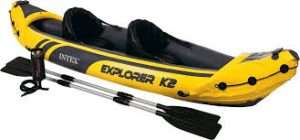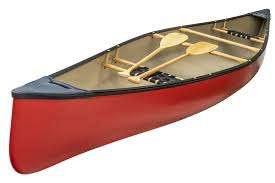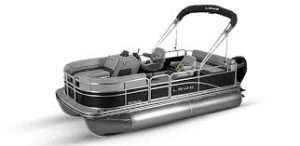In this article boating camping and fishing you are going to enjoy adventure of your life. Camping is just not setting up a tent outside it brings luxurious moments in our life so catching a fish while camping on boating is going to be amazing. let’s go
How to Do Boating Camping and Fishing?
For boating camping and fishing we should understand some important factors
Choose The Right Boat while boating camping and fishing
Option for a boat that suits your camping needs, whether it’s a kayak for solo adventures or a spacious pontoon for group excursions.
Packing of luggage Efficiently
When camping on a boat, space is limited. Pack lightweight, compact gear and essentials such as tents, sleeping bags, and cooking equipment.
Plan According Exact Route
Familiarize yourself with the waterways and designated camping spots along your route. Research any permits or regulations required for camping on specific water bodies.
How to Catch Fish while Boating
Camping and fishing
Boating camping and Fishing is an amazing experience. Follow these tips for a successful experience.
Waters knowledge
Research the fish species inhabiting the area you’ll be camping and fishing in. Understanding their habits and preferences will increase your chances of success.
Use the Right Bait and Lures
Tailor your bait and lures to the target species. Experiment with different options to see what yields the best results.
Be Patient and Observant
Fishing requires patience and keen observation. Pay attention to subtle movements or changes in the water that could indicate fish activity.
How to Combine Boating, Camping, and Fishing?
Combining boating, camping, and fishing seamlessly requires careful planning and organization:
Make a comprehensive checklist of all necessary gear and supplies for each activity, ensuring nothing is overlooked.
Coordinate your boating, camping, and fishing schedules to maximize your time on the water while allowing for relaxation and exploration on land.
Embrace spontaneity and be open to adjusting your plans based on weather conditions, fishing success, or unexpected discoveries along the way.
While Boating Camping and Fishing Selection of Best Boat
Choosing the right boat for fishing while camping depends on various factors such as the type of waterbody, the number of people, and personal preferences. Some famous models are here.
Kayaks
Ideal for solo anglers or small groups, kayaks offer maneuverability and access to shallow waters.

Canoes
Canoes are versatile vessels suitable for calm rivers and lakes, providing ample space for gear and comfortable seating.

Pontoon Boats
Spacious and stable, pontoon boats are excellent for larger groups or families, offering plenty of room for fishing gear and camping equipment.

Catching Preparation of Fish while Boating Camping and Fishing
Preparing for a successful fishing trip involves more than just packing your gear. Here are important things to do.
Equipment
Inspect your fishing rods, reels, lines, and tackle for any signs of damage or wear. Replace or repair any faulty gear before heading out.
Fishing Hotspots
Consult local fishing reports, talk to fellow anglers, and study maps to identify prime fishing locations.
Practice Casting
Spend some time practicing your casting technique to ensure accuracy and distance when you’re on the water.
Keep Calm While Fishing
Fishing is a leisurely activity that requires patience and tranquility. Here’s how to stay calm and enjoy the experience:
Embrace the Serenity
Take in the sights and sounds of nature around you, whether it’s the gentle lapping of water or the rustle of leaves in the breeze.
Let go of distractions and worries, and focus solely on the task at hand. Enjoy the meditative rhythm of casting and reeling in your line.
Whether you catch a trophy fish or simply enjoy a peaceful day on the water, savor the small moments of success and appreciation.
Boating Camping Fishing Storage Ideas
Keeping your fishing gear organized and accessible is essential for a smooth fishing experience. Consider these storage ideas those are very useful.
Tackle Boxes
Invest in tackle boxes with adjustable compartments to keep your lures, hooks, and weights neatly organized.
Rod Holders
Install rod holders on your boat or kayak to secure your fishing rods when not in use, preventing tangles and damage.
Gear Bags
Utilize waterproof gear bags to store larger items such as reels, spare lines, and clothing, keeping them dry and protected from the elements.
Fishing Cooking Tips and Accessories
After a successful day of fishing, there’s nothing quite like preparing and enjoying a delicious meal with your catch. Here are some cooking tips and accessories to enhance your culinary experience:
Fresh Ingredients
Use fresh herbs, spices, and ingredients to complement the flavor of your freshly caught fish.
Portable Grills
Invest in a portable grill or camp stove for cooking your catch lakeside or at your campsite.
Fish Cleaning Station
Set up a designated area for cleaning and filleting fish, equipped with a sharp knife, cutting board, and running water if available.
Which Fish is Easy to Catch?
While the ease of catching fish can vary depending on location and conditions, some species are generally considered more beginner-friendly.
1.Bluegill are abundant in many freshwater lakes and ponds, making them an excellent target for novice anglers. They’re typically easy to catch with simple bait and tackle.
2.Trout are prized by anglers for their fighting spirit and delicious taste. Stocked in many rivers and streams, trout can often be caught using artificial lures or natural bait.
3.Catfish are bottom-dwelling fish found in rivers, lakes, and reservoirs across the country. They’re known for their voracious appetite, making them relatively easy to catch using a variety of baits.
Which Breed is Required to Catch Fishing?
The breed of fish you target will depend on your location and personal preferences. Some popular freshwater and saltwater species include.
Bass
Largemouth and smallmouth bass are prized game fish known for their aggressive strikes and acrobatic fights.
Salmon
Salmon are highly sought after for their firm, flavorful flesh and challenging battles. They’re typically found in cold, clear rivers and coastal waters.
Walleye
Walleye are prized by anglers for their delicious taste and challenging behavior. They’re commonly found in freshwater lakes and rivers throughout North America.
Fishing Types
Fishing encompasses a wide range of techniques and methods, each suited to different species and environments. Some popular fishing types include are here.
Fly Fishing
Fly fishing involves casting lightweight artificial flies using specialized rods and reels. It’s commonly practiced in rivers and streams for trout and salmon.
Trolling
Trolling involves dragging bait or lures behind a moving boat to entice fish. It’s effective for targeting species such as walleye, salmon, and striped bass.
Bottom Fishing
Bottom fishing involves presenting bait or lures on the bottom of the waterbody to target species such as catfish, flounder, and grouper.
Best Campsites in the United States and in Poland
The United States and Poland boast an abundance of scenic campsites offering access to pristine waters and excellent fishing opportunities. Some top picks include are here.
United States Boating Camping and Fishing
Yellowstone National Park, Wyoming
Everglades National Park, Florida
Acadia National Park, Maine
Great Smoky Mountains National Park, Tennessee
Big Sur, California
Poland Boating Camping and Fishing
Masuria Lake District
Bieszczady Mountains
Tatra Mountains
Slowinski National Park
Pieniny National Park
Best Places for Boating Camping and Fishing in Poland and the United States
Poland
Wigry National Park Known for its pristine lakes and tranquil surroundings, Wigry National Park offers excellent fishing, camping, and boating opportunities.
Drawa National Park remote wilderness area is ideal for adventurous anglers seeking solitude and unspoiled nature.
Home to the largest marshland in Europe, Biebrza National Park is a haven for birdwatchers and anglers alike.
United States
Florida Keys: The Florida Keys offer world-class fishing for species such as tarpon, bonefish, and permit, along with picturesque camping and boating spots.
Boundary Waters Canoe Area Wilderness, Minnesota: This vast wilderness area encompasses over a million acres of pristine lakes and rivers, perfect for canoeing, camping, and fishing.
Lake Tahoe, California/Nevada: Surrounded by stunning mountain scenery, Lake Tahoe offers exceptional fishing for trout and kokanee salmon, as well as abundant camping and boating opportunities.
Best Gadgets for Boating Camping and Fishing
Fish Finders
Fish finders use sonar technology to locate fish underwater, helping anglers identify productive fishing spots.
GPS Devices
GPS devices provide navigation assistance and location tracking, essential for safely navigating waterways and exploring remote camping spots.
Portable Solar Panels
Portable solar panels allow you to recharge electronic devices and power camping equipment, reducing the need for traditional fuel sources.
Collapsible Fishing Rods
Collapsible fishing rods are lightweight and compact, making them ideal for travel and backpacking trips.
Waterproof Bluetooth Speakers
Waterproof Bluetooth speakers let you enjoy your favorite music or podcasts while camping or boating, without worrying about water damage.
Most Common Fishing Boat
The most common types of fishing boats include
Bass Boats
Bass boats are designed specifically for freshwater fishing, with features such as swivel seats, live wells, and trolling motor mounts.
Center Console Boats
Center console boats are versatile vessels suitable for both inshore and offshore fishing, offering ample deck space and storage.
Jon Boats
Jon boats are lightweight, flat-bottomed vessels ideal for fishing in shallow waters and narrow creeks or rivers.
FAQs
Do I Need a Fishing License?
In most states and countries, a fishing license is required to fish legally. Be sure to obtain the necessary permits before your trip.
What Safety Precautions Should I Take?
Always wear a life jacket when boating, and familiarize yourself with local regulations and safety guidelines.
How Do I Dispose of Fish Waste?
Dispose of fish waste responsibly, either by burying it away from water sources or by following local regulations for waste disposal.
Can I Camp Anywhere?
While some areas allow dispersed camping, others require permits or reservations. Research camping regulations and designated campsites before your trip.
What Should I Do with Unused Bait?
Dispose of unused bait properly to prevent the spread of invasive species. Avoid releasing live bait into water bodies where it’s not native.
Night Fishing Tips
Use Lights Strategically
Utilize underwater lights to attract baitfish and plankton, which in turn draw larger predatory fish. Additionally, consider using floating or hanging lights to illuminate your boat and attract insects, which can attract fish.
Adjust Your Techniques while Boating Camping and Fishing
Night fishing often requires adjustments to your fishing techniques. Experiment with slower retrieves and larger, more visible lures or bait to account for decreased visibility.
Be Mindful of Safety
Nighttime boating presents unique challenges, such as reduced visibility and potential hazards. Ensure your boat is equipped with proper navigation lights and always wear a life jacket. Additionally, familiarize yourself with the waterbody during daylight hours to navigate safely at night.
Safety Precautions on the Water While Boating Camping and Fishing
Check Weather Conditions
Before heading out on the water, check weather forecasts and be prepared for changing conditions. High winds, storms, and rough waters can pose significant risks to boaters and anglers.
Wear Sun Protection
Protect yourself from the sun’s harmful rays by wearing sunscreen, sunglasses, and protective clothing. Prolonged exposure to sunlight can lead to sunburn, dehydration, and heat exhaustion.
Stay Hydrated
Bring an ample supply of water and stay hydrated throughout your boating and fishing excursion. Dehydration can impair judgment and physical performance, increasing the risk of accidents on the water.
Additional Fishing Tips
Fish During Peak Times
Research the feeding habits of your target fish species and plan your fishing trips accordingly. Many fish species are most active during dawn and dusk, known as the “golden hours” for fishing.
Experiment with Different Baits
Don’t be afraid to experiment with a variety of baits and lures to entice fish. Natural baits such as worms, minnows, and insects can be effective, as well as artificial lures designed to mimic prey.
Stay Persistent
Fishing requires patience and persistence. Even on slow days, continue to adapt your techniques, explore different areas, and remain optimistic. Remember, every fishing outing is an opportunity to learn and improve your skills.
Budget-Friendly Boating Camping and Fishing Options
Public Campgrounds
Many state and national parks offer affordable camping options with basic amenities such as restrooms, picnic tables, and fire pits. Consider reserving campsites in advance during peak seasons.
Rentals and Shared Equipment
If you’re on a tight budget or new to boating camping and fishing, consider renting equipment or joining group outings through local outdoor recreation organizations. This allows you to access quality gear without the upfront cost of ownership.
DIY Meals
Save money on food expenses by preparing your meals at the campsite using budget-friendly ingredients. Simple meals such as sandwiches, pasta dishes, and grilled meats are easy to prepare and satisfy hungry campers.
Conclusion
By incorporating these additional tips and considerations into your boating camping and fishing adventure, you will enhance your experience while promoting safety, sustainability, and enjoyment for yourself and future generations of outdoor enthusiasts. Happy adventuring!
https://campcanvas.com/boating-camping-and-fishing/
 CampingSurvivalistHuntingFishingExploringHikingPrivacy PolicyTerms And Conditions
CampingSurvivalistHuntingFishingExploringHikingPrivacy PolicyTerms And Conditions
